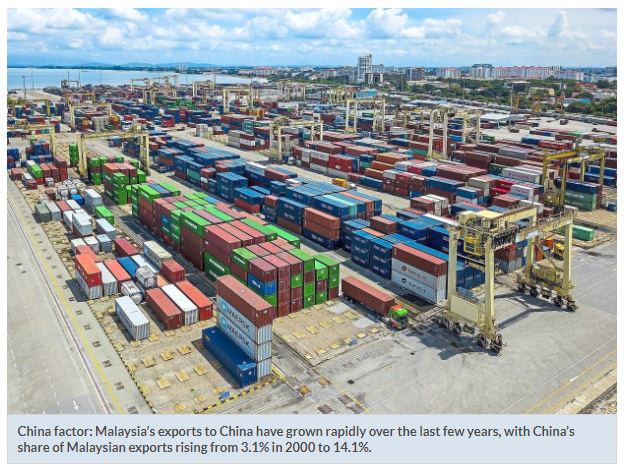Malaysia: Exports expected to contract 5.1% in January
PETALING JAYA: Malaysia’s imports and exports are expected to have contracted by 6.6% and 5.1% respectively in January, resulting in a RM12.bil trade surplus for the month, said RAM Ratings.
The rating agency said that this was largely due to seasonally subdued regional industrial activity during the lunar new year festivities.
It said this was compounded by industrial disruptions arising from the Covid-19 outbreak.
“Given that the number of global Covid-19 infections are still rising, the outbreak is expected to remain a drag on global trade in the near term, ” the rating agency said in a report yesterday.
It added that the severity of Covid-19 was exacerbated by the fact that China was both the epicentre of the outbreak and a central node in the global value chain.
China, it noted, was the second largest source of value-added in the world after the US; and a respective 12.3% and 12.7% of global gross exports can be attributed to value-added generated in China and the US.
Within Asean, it said Vietnamese exports were the most vulnerable, given that Vietnam was significantly reliant on output from China.
The rating house said some 14.1% of Vietnam’s gross exports were attributable to value-added input derived from China, with the highest exposure recorded by machinery and equipment-related exports.
Malaysia, it said, came next, with 7.7% of its exports relying on inputs from China.
It said much of Malaysia’s exposure was centred on the electronics and electrical-related sector, with 13.8% of its exported value consisting of Chinese-derived value-added input.
Malaysia’s exports to China have also grown rapidly over the last few years, with China’s share of Malaysian exports rising from 3.1% in 2000 to 14.1% currently.
Over the weekend, China had announced that its manufacturing Purchasing Managers Index (PMI) had slowed to 35.7, against analyst expectations of 45.0 in a Bloomberg poll.
The country’s PMI had earlier fallen to 50.0 in January.
China’s Caixin manufacturing PMI also fell to 40.3, its steepest decline in 11 years from 51.5 in January due to the shutdown of factories and festive holidays.
A reading below the 50 marks points to a contraction in the sector’s activity, while a figure above 50 indicates an expansion.
The record-low manufacturing data intensified concerns about the potential impact of the Covid-19 outbreak on the Malaysian economy, particularly in the first quarter.
In Malaysia, the manufacturing sector is already feeling the impact, with the headline IHS Markit Malaysia Manufacturing PM falling to 48.5 in February, from 48.8 in January as supply-side disruptions heavily impacted business operations.
Source: https://www.thestar.com.my/business/business-news/2020/03/04/exports-expected-to-contract-51-in-january


 Thailand
Thailand




